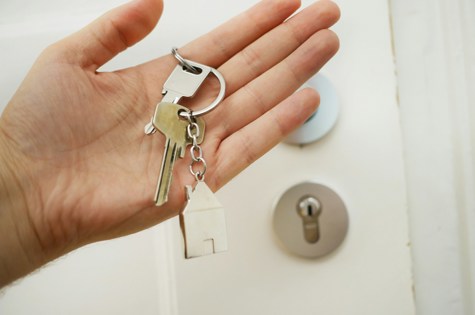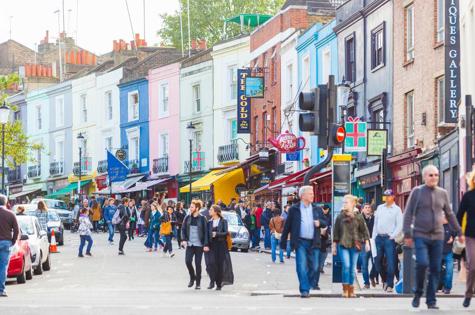Can I Access Shared Ownership if I'm Self-Employed?
Based on UK statistics, the number of self-employed individuals in London is nearly a tenth of the population. Self-employment comes with exciting possibilities for growth and earning potential, but it also comes with its challenges. Tax payments, temporary contracts and a changing client base can all contribute to a fluctuating income.
Accounting for financial instability when self-employed is necessary, but it shouldn’t stop your homeownership journey. At NHG, we welcome a diverse range of applicants, including those who would prefer to be their own boss. We’ve made an easy guide on applying for shared ownership if you’re self-employed.
Shared Ownership
With a Shared Ownership apartment, you buy a percentage of your home and pay subsidised rent to us on the rest. Because you’re buying a smaller share in the property, your upfront deposit and mortgage payments are smaller too. When you can comfortably afford to own more of your home, you can reach out to us about increasing your share.
Self-Employed Shared Ownership Eligibility Criteria
- You must not currently own a property.
- Your household income must be less than £90,000.
- You will need to present audited accounts for the last two years plus an estimate for the current year, or copies of your tax returns for the last three years and SA302 forms for the same period.
We also recommend that you meet with a Specialist Financial Advisor to discuss your mortgage options before applying.
You Won’t Be Eligible:
- If you already own a home and can’t/won’t sell it.
- If your household income is over £90,000.
- If you’re unable to provide adequate documentation to show your financial history.
- If you can’t prove that you can afford your rent and mortgage payments long-term.
Shared Ownership Income Requirements
NHG provides a guidance income on all the homes we provide. It’s based on how much you’d need to afford the upfront and long-term costs of Shared Ownership. Please note, the guidance income can vary depending on your deposit size.
If you have any questions about the guidance income on a property, contact our team.
Mortgage Eligibility for Self-Employed Individuals
Applying for a mortgage is no different if you’re self-employed. The main difference is that you’ll need more evidence of your financial history. With the correct documentation, you should be able to qualify for the same mortgage rates as someone in a permanent, full-time role.
What will you need?
Proof of Identity
Such as a passport or driving license.
Proof of Address
e.g. Recent utility bills.
Proof of Income and Deposit
Your proof of income should include all your bank statements from the last three to six months. You’ll also need:
- Two or more years of certified accounts prepared, preferably by a chartered accountant.
- SA302 forms or a tax year overview from HMRC covering the last three years.
- Documents to evidence future affordability, such as upcoming contracts.
If you’re a sole trader, most lenders will look at your net profit over previous years and calculate your mortgage options based on those figures. Meanwhile, if you own a limited company, this will be calculated using your net profit figures or your salary.
If your earnings fluctuate significantly from year to year, then lenders may determine what you can borrow based on your lowest earning year.
How Can I Improve My Chances of a Good Mortgage Deal?
Collect Your SA302 Forms
HMRC generates a SA302 form every time you send a tax return. You can access this form through your online HMRC account or request HMRC to send you the forms via post.
An SA302 form has the earnings you’ve declared and your tax calculation for that year. Having these forms ready before applying for a mortgage will streamline the process.
Optimise Your Credit Score.
Your credit score is a key factor in the mortgage deals you can access. Here are a few tips to boost it:
- Register for the electoral roll where you live.
- Make all your credit payments on time.
- Use your credit card regularly for affordable purchases.
- Pay off any money spent on your credit card before making an application.
- Keep old credit card accounts open so lenders can see your credit history.
Get An Accountant
Having a chartered accountant balancing your books is a green light for lenders. If you’re applying for a mortgage, it’s a worthwhile investment.
The Bigger Your Deposit, the Better
The size of your upfront deposit will decide the mortgage deals available to you, particularly if you’re self-employed.
NHG Support Self-Employed Buyers
Whether you’re in full-time employment, a sole trader, or a business owner, NHG is committed to helping new buyers find their dream homes in London. Hear from some of our new residents about their experience of Shared Ownership with NHG.
Explore Shared Ownership Properties Across London with NHG
NHG is committed to helping new buyers find their dream homes in London. If you’re self-employed and looking to explore Shared Ownership with us, explore our developments across London and contact the NHG team.





















